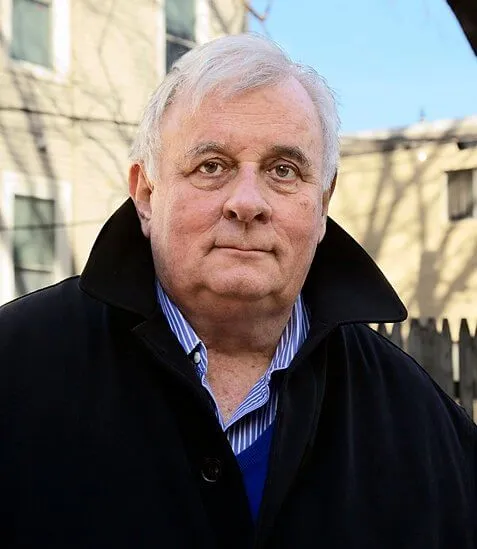Edmund White, "who mined his own life story, including his vast and varied catalog of sexual experiences, in more than 30 books of fiction and nonfiction and hundreds of articles and essays, becoming a grandee of New York literary life for more than half a century," died June 3, the New York Times reported. He was 85.
 |
|
| Edmund White (photo: Andrews Fladeboe) |
|
White had success early, beginning with Forgetting Elena (1973), about the rituals of gay life on a fictionalized Fire Island. The Times praised it as "an astonishing first novel, obsessively fussy, and yet uncannily beautiful." His epistolary second novel was Nocturnes for the King of Naples (1978), a series of letters from a young gay man to his deceased ex-lover. Other novels include A Boy's Own Story (1982), a tale of coming out set in the 1950s. His semi-autobiographical novels, The Beautiful Room Is Empty (1988) and The Farewell Symphony (1997), "follow the same unnamed protagonist into adulthood during the 1960s, then through the horrors of AIDS as he approaches middle age."
White's nonfiction works include several memoirs: My Lives (2005), City Boy (2009), Inside a Pearl: My Years in Paris (2014), and The Loves of My Life, a "sex memoir," as he described it. He also published nonfiction biographies of the French authors Jean Genet, Marcel Proust, and Arthur Rimbaud. Other nonfiction books include The Joy of Gay Sex (1977, with Charles Silverstein), States of Desire (1980), and its sequel, States of Desire Revisited (2014), as well as The Unpunished Vice: A Life of Reading (2018).
After graduating from the Cranbrook School for Boys, outside Detroit, in 1962, White moved to New York, where he worked for Time-Life Books and did his own writing at night. The Times noted that he was passing by the Stonewall Inn during the early morning of June 28, 1969, when the police raided it and were met by fierce resistance by patrons in what became known as the Stonewall Riot.
In City Boy, White later recalled: "Up till that moment we had all thought that homosexuality was a medical term. Suddenly we saw that we could be a minority group--with rights, a culture, an agenda."
He left Time-Life that year and spent six months in Rome in 1970, then moved to San Francisco to work as an editor for the Saturday Review. He returned to New York in 1973 and to write, a form of therapy, as he told the Sydney Morning Herald in 2006, that "has always been my recourse when I've tried to make sense of my experience or when it's been very painful."
White won numerous awards for his work, including being named a Pulitzer Prize finalist in 1994 for his Genet biography. He taught writing at several universities, including Brown and Princeton, where he was on the faculty from 1999 to 2018.
He was one of seven members of The Violet Quill, a gay writers' group founded in 1979 that included the soon-to-be celebrated authors Andrew Holleran and Felice Picano, the Times wrote, adding that "the members met regularly to critique one another's work. In 1982, he helped found the group Gay Men's Health Crisis in New York City."
White moved to Paris in 1983 and stayed there until 1998. He discovered that he was H.I.V. positive in 1985. Four of the seven members of the Violet Quill died of AIDS, as did his two closest friends, the literary critic David Kalstone and his editor at Dutton, Bill Whitehead, as well as many other friends and lovers.
Reflecting on living into old age while so many gay men died young, White told the Guardian in 2000: "I do feel some degree of guilt. It's also hard not to feel numb, and the worst thing for a writer is to feel numb. Your natural tendency is to want to forget; but your deepest sense of duty and obligation is to history and to the people you knew and loved."
White produced some of his most original work while in his 80s, the Times wrote, citing in particular A Previous Life (2022), in which "a married man and woman holed up in a ski chalet in 2050 share their sexual histories, including details of the husband's affair 30 years earlier with an elderly writer. The writer is named Edmund White."

